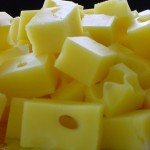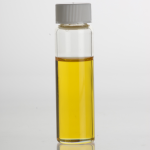Fats
Good fats – Bad fats
The type of fat you eat, is much more important to your health than the amount of fat you eat. What really matters when it comes to avoiding diseases, is to pay attention to the type of fat you eat. You can prevent many diseases by eating healthier fats. You probably have heard that there are good fats and bad fats, but what are they? Find all the information you need about fats, to make the right fat choices. Learn about the four major types of fatty acids below.
Different types of Fatty Acids
All fats contains fatty acids, which are the building blocks of the fat in the foods we eat and the fat in our bodies. There are four types of fatty acids that are important to your health and these are: trans fatty acids, saturated fatty acids, mono unsaturated fatty acids, poly unsaturated fatty acids. Trans fatty acids are unhealthy fats and should be avoided, whereas poly unsaturated fats are healthy fats that our body need. Poly unsaturated fatty acids are essential for our health, and this is why they are often referred to as essential fatty acids.
1. Trans fatty acids 
(fried foods, processed foods, hard butter, margarine)
Trans fatty acids are often referred to as trans fats. These unhealthy fats are made by a chemical process called partial hydrogenation. Trans fatty acids form when vegetable oil hardens. Trans fatty acids can be found in pre-packaged foods, fried foods, French fries, micro waved popcorn and in foods from fast food chains. You should avoid a diet containing trans fatty acids since they are linked to heart diseases.
2. Saturated fatty acids
(solid at room temperature, animal sources)
Saturated fatty acids are found in animal products like butter, cheese, milk, ice cream and meat. They are also found in some vegetable oils like coconut oil and palm oil. Diet rich in saturated fats can cause high cholesterol levels and should therefore be avoided.
3. Mono unsaturated fatty acids
(vegetable oils)
Olive and canola oils, walnuts, almonds, pistachios and avocado are all high in mono unsaturated fatty acids. Mono unsaturated fatty acids improve your blood cholesterol and may protect you against heart disease and stroke. Mono unsaturated fatty acids can have a beneficial effect on your health when it’s used to replace saturated fats.
4. Poly unsaturated fatty acids
(essential fatty acids: omega 3, omega 6)
Poly unsaturated fatty acids are often referred to as essential fatty acids, because they are necessary in the diet as they can not be made in the human body. Essential fatty acids are important for inflammation and immune response, blood clotting, blood pressure and blood lipid levels. Poly unsaturated (essential) fatty acids) include:
Omega 3 – Alpha-Linolenic Acid (ALA) – found in vegetables, fruits, nuts, grains, seeds, sunflower oil, soya
Omega 6 – Linolenic Acid (LA) – found in green leafy vegetables, salmon, mackerel, flax seeds, walnuts
Why are essential fatty acids important?
Essential fatty acids (EFAs) are fats that are essential to the diet because the body cannot produce them. Essential fatty acids have many important functions and are needed for normal growth and behavior. Essential fatty acids are important for healthy and balanced:
- cell membranes
- hormone level
- immune system
- hair and skin
- sex and adrenal hormones
- intestinal bacteria
- synthesis of tissue lipids
- cholesterol levels
- prostaglandins
- nerve impulses
- memory and learning ability
Essential fatty acids deficiency
Many factors, including stress, allergies, disease and a diet high in fried foods, can increase the body’s nutritional need for essential fatty acids. People who are overweight, on a low fat diet, have frequent infections, dry eyes, dry skin, dandruff, or brittle nails, may need to increase their essential fatty acids intake.
Signs of essential fatty acids deficiency include high blood pressure and cholesterol levels, hair loss, eczema, behavioral disturbances, bad immune system, slow healing, infections, tear glands may dry up, blood clots, damage to the kidneys, heart and liver. The requirement to prevent deficiency is about 1% of total energy intake, equivalent to 260mg/MJ. A desirable intake is 8-10% of energy intake, about 2-2.6g/MJ.
Foods rich in essential fatty acids
Evening primrose oil, grape seed oil, flaxseed oil, soybeans, walnuts, sesame seeds, sunflower seeds, avocados, meat, salmon, trout, mackerel and tuna are all rich in essential fatty acids. Foods rich in Omega 3 include salmon, mackerel, herring, sardines, shellfish, rapeseed oil, flaxseed oil, walnut oil, canola oil, and walnut oil. Foods rich in Omega 6 include corn oil, sunflower oil, soybean oil, sesame seed, and sesame seed oil.
Tips on healthy fats
- Avoid fried and processed foods.
- Replace saturated fatty acids with mono unsaturated fatty acids. For example: use vegetable oils when cooking, instead of cooking with margarine or butter.
- Make sure you eat enough of the essential fatty acids, since they cannot be made in the body. For example: eat more fatty fish and reduce red meat in your diet.
Note: Small children should not be on a fat-restricted diet because fat is an important nutrient for brain development.

 Facebook
Facebook  Twitter
Twitter  RSS
RSS







